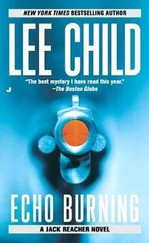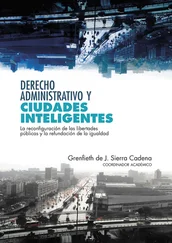She had been on an East London Line underground train. She had been to see Brunel’s tunnel under the Thames. She had been researching the great engineer for a series about Victorian technologies. She had her laptop with her. Three hoodies burst into the carriage. One of them had been brandishing a knife. It was a large, open-bladed weapon, somewhere between a bowie knife and a machete. It was meant to terrify. It was also meant to hurt. When the thug with the knife made a grab for her laptop, she had stupidly tried to hang on to it. And he had brought the knife down to slash her face.
Martin took the blow. He came out of nowhere and held out his arm to protect her from disfigurement, and the blade was embedded with the force of the blow deep in his forearm. And the thug lost his grip on the weapon as Martin wrenched his arm away and jerked the knife out of the meat of him and sent it skittering along the carriage floor. And then he grinned and inflicted a few blows of his own. He delivered a series of savage punches with incredible accuracy and speed. He just beat the three of them senseless while the rest of the carriage looked away and pretended that none of this was actually going on.
He saved her from disfigurement. He did it purely on instinct, oblivious to the pain it would cause him or the further physical consequences. When he was released from arrest afterwards and treated, it was discovered that he had severed a tendon. Fighting with a severed tendon in his arm had made the damage worse. It took an operation and four months of physiotherapy to enable full recovery. The scars, from the knife blow and the op, he would always carry.
When she tried to thank him, it was obvious from his reaction that he thought he had done nothing at all remarkable. He thought that everyone, in those circumstances, would behave exactly as he had done. There was a right way and a wrong way to do things and he had done the right thing because, well, that was what you did. It was one of the things she loved about him. It was not the thing about him she loved most, but courage nobly used was a very attractive quality. She had made a joke about it, they both had, knights in armour, damsels in distress and so on. But it was an attractive quality for a man to possess. And she also thought it rare.
Churchtown announced itself in a cluster of tiny cottages, some of them thatched. They were plain as well as small and Suzanne knew that they dated from the early nineteenth century. This was the oldest part of the whole settlement of Southport. Neighbouring places like the hamlet of Hundred End and the village of Ormskirk were much older. They dated back to the first Viking invasion. But Churchtown was as old as anywhere in Southport and so a fitting location for the town’s museum. Some of the cottages had been turned into shops of an artsy-craftsy variety. They sold hand-painted children’s toys and embroidery kits and watercolours and antiques. The roads were very narrow and the shops were very quaint. But the effect was somewhat spoiled by the huge lorries trundling through in a procession of stinking diesel in the heat. Churchtown seemed to be a traffic rat run.
The Botanic Gardens themselves were quiet and secluded, well away from the sound and smell of traffic. But they did not look spry. Everything seemed mossy and mildewed. There was a lake, green with silt and clogged with floating lily pads, a few ducks besieged on its surface. A wooden bridge arched over the lake. Its paint was peeling and its planks sodden and Suzanne would barely have trusted it to take her weight. The museum was off to the left, occupying a building with a classical portico next to an old conservatory that had been converted into a souvenir gift shop and café. She took in the scene, thinking that nothing she was looking at would have been incongruous fifty years ago or, for that matter, eighty years ago, in 1927. She climbed the steps to the entrance and walked inside.
Most of the ground floor was occupied by a shrimper’s cart with its nets extended and a full-sized figure of a shrimper in oilskins staring through sightless glass eyes at a point where the sea and his catch under it would have scurried. There was a Victorian fire appliance and a vintage motorcycle. There was a faithfully reproduced High Victorian parlour. It was all very picturesque and interesting. But there were no books. Suzanne was not encouraged. And there were no staff, either. She could hear a transistor radio very faintly somewhere. But there seemed to be no one about.
She climbed the stairs. The first-floor display comprised two large rooms. One of them was pretty much dedicated to the Mexico disaster and its aftermath. The other was full of stuffed wildlife from the Fylde Coast. The taxidermist had done an excellent job. The animals were as lifelike as any dead beast was ever going to be. But Suzanne was starting to feel that Alice Daunt had surely misdirected her to this haphazard assemblage of local relics and curios. She wanted books. Or she wanted microfiche or an easily accessed computer database. She wanted facts and revelations, not dust and elderly pictures.
She followed the tinny sound of the radio. It was playing ‘When Love Breaks Down’. Suzanne thought that she had never disliked a song more. But she listened carefully, trying to track its source. It was coming from down below her, from the ground floor. She descended the stairs. The music barely increased in volume. It was being listened to surreptitiously, in a sly near-silence. Gaining the ground floor, she looked around. There was something in the gloom to the right of the Victorian parlour. It was darkness on darkness, an added dimension, the suggestion of a shadow or opening. She walked towards it. The song grew louder without gaining body. It was shrill, exactly the sort of sound reproduced by a pocket radio from the 1960s or 1970s. Suzanne thought that no pleasure could be gained from listening to this starved melody. With a song you liked, it would be even worse.
It was a sort of cupboard without a door. Her eyes adjusted and she saw a figure sitting there. He looked up at her and jumped. He was wearing a liveried sweater, uniform trousers. He was the museum staff. And if he wasn’t on his break, he was skiving. He switched off the radio.
‘Can I help you?’ He stood, finger-combing his hair, clearly caught out and embarrassed.
‘I’m researching a Southport resident called Jayne Boyte.’ Suzanne took out her BBC accreditation and showed it to the man.
‘People generally make an appointment. I mean, they email us or telephone ahead, unless they’re just casual visitors.’
‘I’m not a casual visitor, as you can see. But I’m not from Southport, obviously. I wasn’t previously aware of the existence of this museum, of this resource.’
The man had recovered from her ambush. He seemed to like the flattery implicit in his place of work being termed a resource by someone with a laminated pass. Work avoidance, Suzanne thought, looking down at the radio where it sat on his bench. It was silver and rectangular and held together in one corner by adhesive tape.
‘Essentially, we have two separate archives,’ the man said. ‘The photographic archive is catalogued both by date and by subject matter. The written archive is not catalogued at all. We did have an archivist scheduled to put it all in some kind of order about three and a half years ago. But budget cuts put paid to that.’
Suzanne nodded. It was a familiar complaint.
‘You’re more than welcome to have a look. It’s all on shelves, roughly alphabetically listed by author, in a room in our basement.’ He began to search for a key from a bunch attached to a key ring on his belt. ‘You have to come with me around to the back of the building to gain access to it. It’s through a door at the rear and down a set of steps. Do you have a mobile phone?’
Читать дальше












